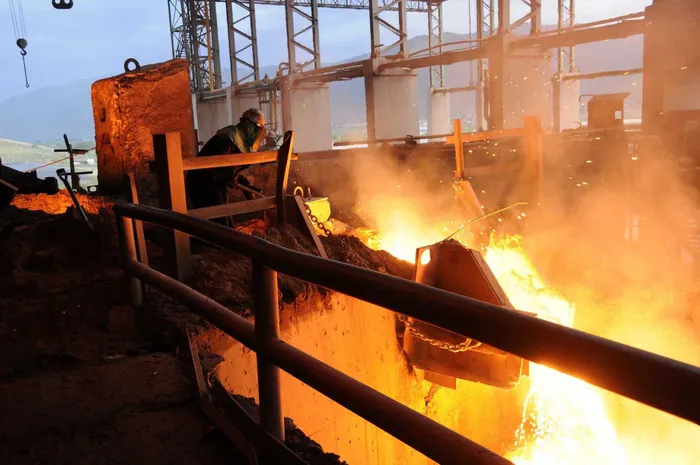Mining industry raises alarm over ferrochrome export tax as electricity tariffs receive nod
MINING

Chrome mining has been one of the best-performing subsectors of the South African mining sector, with data from Statistics SA showing that chrome production increased by an average of 8.4% between 1994 and 2024 on an inflation adjusted basis.
Image: Supplied
Tawanda Karombo
The Minerals Council of South Africa has raised concerns over the approval by government of an export tax on ferrochrome concentrates and welcomed the Cabinet's adoption of preferential electricity tariffs for ferrochrome smelters.
Chrome mining has been one of the best-performing subsectors of the South African mining sector, with data from Statistics SA showing that chrome production increased by an average of 8.4% between 1994 and 2024 on an inflation adjusted basis.
This reflects an accelerated pace of growth than the 1.3% recorded for non-gold production in South Africa over the same period.
It was against this backdrop that the Minerals Council on Thursday said it was concerned by the approval by Cabinet of an export tax on ferrochrome concentrates.
“A particular concern in the Cabinet statement is the approval of the concept of an export tax on chrome concentrate. There remains no reason why export taxes would support increased beneficiation in South Africa now,” said the Council in a statement.
The tax has previously been raised by government but extensive engagements with the chrome mining sector players resulted in the proposal being set aside.
South Africa’s chrome mining sector, said the Minerals Council, has consistently contributed to employment, with export volumes of the mineral topping 20.5 million tons in 2024. South Africa earned R84.6 billion in export revenue from chrome last year.
Despite this employment and export earning potential, South African producers are increasingly mothballing chrome smelters, citing high electricity costs that are rendering them poorly competitive in the face of stiff competition from Chinese smelters.
China has been able to offer its chrome smelters incentives, including lower electricity costs. South African producers have also recently battled erratic electricity supply although the government has moved in to address this by approving a preferential tariff for ferroalloy smelters.
“As a consequence of electricity prices increasing by nearly 900% in the past two decades, South Africa’s chrome industry has opted to export chrome concentrate rather than beneficiate it at a loss.”
The Minerals Council has welcome the Cabinet announcement on preferential electricity tariffs for ferrochrome smelters.
This forms part of the government’s measures in addressing the key factors that has rendered South Africa’s ferrochrome industry uncompetitive. The use of Special Economic Zones to give the industry tax breaks has also been described as welcome.
However, the mining industry employers' organisation said “the details remain lacking, requiring extensive consultations with the government to understand these proposals and which industries will benefit” from the measures.
“To the extent that it prevents illegal exports of chrome, the Minerals Council welcomes the proposal to require all chrome exporters to obtain permits from the International Trade Administration Commission of South Africa,” said the Council.
“However, we would strongly oppose any suggestion that such a system be expanded or used to impose export quotas or restrictions on legally mined chrome.”
South Africa, a major mining hub in the region, has identified platinum, manganese, iron ore, coal, and chrome ore as “high-critical minerals” under the new Critical Minerals and Metals Strategy.
It has also classified commodities such as gold, vanadium, palladium, rhodium, and rare earth elements as minerals with moderate to high criticality while copper, cobalt, lithium, graphite, nickel, titanium, phosphate, fluorspar, zirconium, uranium, and aluminium were identified as minerals with moderate criticality.
BUSINESS REPORT